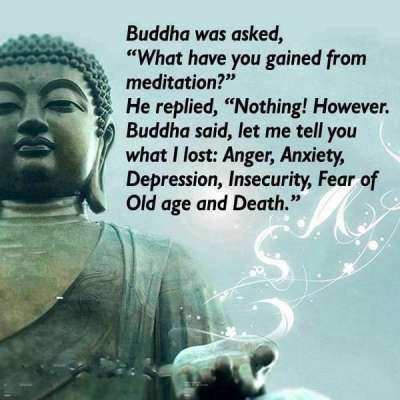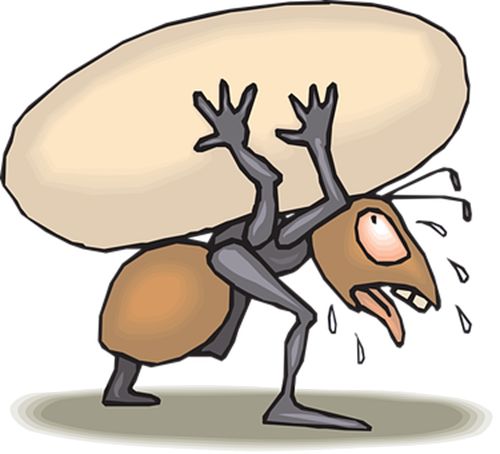Guest Blog by Bill Patterson
Bill is a Clinical Hypnotherapist and Psychologist. He works with individuals and groups to help achieve goals in health and self-improvement.
The way we think about things is important in determining how we feel. Our thoughts are negatively biased as a possible protection against harm. Read on to find out if you are suffering from ANTS which can alter to brain chemistry, and if so what you can do about it.
Why we have Automatic Negative Thoughts (ANTS )
Our thoughts are negatively biased as a projection against possible harm. Yet the brain can fool you into thinking that your negative thoughts are accurate and logical, but they serve only to reinforce negative thinking and emotions.
What are ANTS?
Back in the 1960s Dr Aaron Beck was working with patients with depression and noticed that continuous streams of negative thoughts spontaneously arose.
He became convinced that automatic negative thoughts like “I never do anything right” or “I’m such a loser” affected overall happiness and mental health even causing his patients depression.
He noticed the negative thinking fell into three categories: negative ideas about themselves, the world, and the future.
He called these negative thoughts, Automatic Negative Thinking or ANTS.
Here are just 5 examples of ANTS:
(1) Overgeneralisation: Such thoughts often include the words “always” and “never”.
E.g. I forgot to finish that project on time. I never do things right.
He didn’t want to go out with me. I’ll always be lonely.
(2) Filtering (Selective Abstraction): Concentrating on the negatives while ignoring the positives.
E.g. I know he [my boss] said most of my submission was great but he also said there were some mistakes that had to be corrected…he must think I’m really hopeless.
(3) All or Nothing Thinking (Dichotomous Reasoning): A tendency to view things at the extremes with no middle ground.
E.g. I made so many mistakes. If I can’t do it perfectly I might as well not bother.
I won’t be able to get all of this done, so I may as well not start it.
This job is so bad…there’s nothing good about it at all.
(4) Personalising: Thinking that what people say or do is critical of you.
E.g. John’s in a terrible mood. It must have been something I did.
It’s obvious she doesn’t like me, otherwise she would’ve said hello.
(5) Catastrophising: Overestimating the chances of disaster.
E.g. I’m going to make a fool of myself and people will laugh at me.
What if I haven’t turned the iron off and the house burns down.
If I don’t perform well, I’ll get the sack.
Leading cause of disability worldwide
ANTS can negatively impact brain chemistry and lead to depression.
Studies show depression is the most common, burdensome, and costly psychiatric disorder worldwide in adults.
In Australia, the average annual cost per person using antidepressants can range from $1200-$2400.
Alarmingly nearly 1 in 10 Australians take antidepressants and long term usage has become common. Are there other solutions?
WHAT CAN YOU DO?
 ANTS is a default thinking pattern that can be managed well through meditation:
ANTS is a default thinking pattern that can be managed well through meditation:
Meditation… Developing a consistent and continuous practice of mindfulness and meditation, for as little as 10 minutes a day, will help eliminate excessive negative thinking.
Even those who don’t believe they can meditate are frequently suffering from ANTS. Meditation is not difficult if you apply patience and persistence to the practice. Meditation is “ANT RID” and it costs zero to practise.
Join us to learn the art of meditating well at The More Than Meditation Course – “more than just sitting” …
One night per week for 5 weeks. Now in its 16th year!
Here are some other strategies.
1. PRACTICE CHANGING THOUGHTS
Once you notice an unwanted thought that keeps reverberating and it is s stuck in your head, focus on a sensation in your body such as the breath coming in and out of the nose, any sensations in the hands or a smell. Try pinching your skin and focus on the sensation…. notice the unwanted thought disappears from where it came.
2. DISTRACT YOURSELF.
A common way to overcome ANTS is to notice them and then immediately do something else that requires some concentration. It is helpful to have a prepared list of things to do.
- a few simple exercises
- a few rounds of box breathing,
- hum or sing a song,
- tick of something from your to-do list
- call a friend.
3. TALK TO A TRUSTED ADVISOR OR FRIEND
If your efforts to rid yourself of ANTS is not working talking about is often helpful.
3. TAKE YOUR THOUGHT OUT OF YOUR HEAD AND PUT IT ON PAPER.
When you are stuck with a reverberating thought, write it down and then make a short list of the things you can do to resolve the issue. Once it is on paper it is easier to let it go.
5. ACTIVATE YOUR INNER PHARMACY.
Meditation, breathing exercises, exercise, and anti-inflammatory foods all boost beneficial brain hormones.
If your negative thoughts are impacting upon your lifestyle, relationships and how you function in life it can be very helpful to work with a health professional who is experiencing in getting rid of ANTS and who can show you how to activate your inner pharmacy.



Helpful, thank you.
Great article thanks.